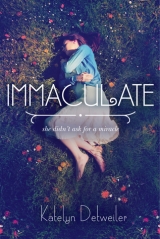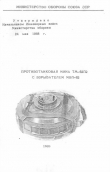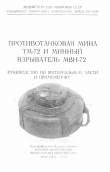
Текст книги "Immaculate"
Автор книги: Katelyn Detweiler
сообщить о нарушении
Текущая страница: 19 (всего у книги 21 страниц)
“People still call,” he said. “People still write. They’re a crew of small town cops up against an enemy they can’t begin to compete with, and an enemy they may even agree with.” He looked apologetic about that last part, but kept going. “We need to find out as much as we can on our own first. We need to find out what we’re really up against before we can decide on anything else. But we’re not going to sit around and do nothing, goddamn it. We’re not just going to let them win.”
“What’s going on?”
I turned to see Izzy and Hannah standing in the doorway.
“Who’s not going to win what?” Izzy asked, her eyes shifting from me to my dad.
“My dad thinks there’s going to be some sort of protest. An organized event in Green Hill, maybe.”
Hannah gasped, her eyes widening with alarm. Izzy reached an arm around her shoulders to steady her.
“So what are we going to do?” she asked. “What’s the plan?”
“I . . . I don’t know. I have to think about it,” I said, dropping into a kitchen chair. “I guess I shouldn’t be completely surprised that this is happening. I mean, really, it’s only been building up to this, right? The more pregnant I am, the closer I get to having this baby, the more the tension is rising, and they couldn’t possibly just let it all go. Not now, not after they’ve put this much attention on me for the last few months.”
“I don’t think it can just be you versus them,” Hannah said, her voice shaky, barely above a whisper. “Or even us versus them. I don’t think we can stop them from meeting, not if they’re not technically doing anything illegal. But maybe we can help bring out other voices, too, the people who have been supporting you, especially since the video went out. The people who believe you—the people who would be outraged that this, this . . . this hate group . . . is taking it so far. What if they came, too? What if they all came?”
Izzy whistled and sagged against the doorframe. “That sounds like an epic battle, Han. A little too explosive, maybe.”
“Maybe, but maybe an explosion is what we need to blow everyone else away. I mean, it can’t keep going on like this, can it? Something has to be done. And if we can’t stop them from coming, the least we can do is make sure it’s a balanced fight, right?”
“Jesus, Han, you’ve certainly changed in six months.”
“It’s been a long six months, Izzy.” Hannah sighed. Izzy’s cheeks flamed, and she looked down at the tiled floor.
“I don’t know, Han, it does sound a little risky.” I looked up at my dad, waiting for his vote.
“She might be right,” he said, turning back to stare out the front window. “If we can’t stop them, we do the best we can to show that we’re not alone. It will at least make me feel like you’re less vulnerable if there are other people standing in front of you. It’s either that . . . It’s that, Mina, or we take you away from here. You leave Green Hill and hide out, at least until everything cools off. Protecting you and the baby is my first priority.”
It wasn’t as if this idea were new to me—it was exactly what I had promised myself I’d do if necessary on that dark, gloomy car ride back from Long Beach Island. And I had thought about it the very first time Gracie told me that she was scared for our safety. But now that I was getting so close to the end, now that Izzy was back, I wasn’t ready to let go of my life here. I wasn’t ready to surrender. “No,” I said, shaking my head. “That seems like giving in to them. Everyone will be fine, no matter who comes and who doesn’t come. The worst they can do is hold signs and scream names at me, and trust me, there’s nothing I haven’t heard before.”
My dad dropped his fist against the wooden table, banging a few times without saying a word. Knocking on wood. The action, so subconscious and immediate, made me shiver. I usually laughed when he did that, an old family joke, since none of us were actually superstitious enough to believe in jinxes. But no one laughed this time. I was actually thankful he had done it. Just in case.
I needed anything—any kind of luck or good fortune I could get.
Anything that would keep me and my baby safe.

Once word of the official meeting was leaked, none of the details were hard to come by. One of my more fanatical critics had rented out the Green Hill Firehouse for the meeting, and since there wasn’t anything technically illegal about the protest, the powers that be at the firehouse couldn’t stop it from happening. Or maybe they didn’t want to stop it in the first place, since they very well might have been at home painting their own anti-Mina signs and T-shirts.
And as it turned out, when word spread and the media picked up on the event, I didn’t have to do much to rally my supporters. They were outraged enough as it was, and once a leader seemed to emerge, the voice of Team Mina—a feisty fiftysomething woman named Stella from Philly with a background in social advocacy—it was clear that they would be coming to the meeting, too.
“We’re going to be there for you, Mina,” Stella had said to me on the phone a few days after the shower. “Don’t you worry about that for a minute.” I’d reached out to her after she’d first spoken up online about the protest. I was thankful, but even more, I was curious. Curious about how a stranger could care this much about my cause, about protecting me from “injustice.”
“It’s not right what those people are doing to you, and it’s about time they realize how far they’ve overstepped.” She’d paused then and took a deep breath that I could hear rattle against the phone. “Look, Mina, truthfully, I’m not sure what I believe about all this, but that part doesn’t matter to me. I believe in your right to privacy. And there are plenty of people who do believe you. Good and honest people who have more faith in this world than I may have. But I have faith in the fact that it’s the right thing to do, standing up for you. Faith is all different things to all different people. Faith is trust. And I feel the trust in my bones, Mina. You can’t always explain feelings like this. You just do. You just act.”
I’d hung up feeling stronger than ever. But more nervous than ever, too.
I couldn’t let Stella down. I couldn’t let any of these people down.
The big day—Saturday, February 16—arrived sooner than I would have liked, but time was moving strangely in general, too fast and too slow all at once. I was officially full-term, just three weeks left before March 7, though really it could happen at any time now—a crazy idea that made my heart race and my palms sweat every time I thought about it. And I couldn’t stop thinking about it. I was ready for the baby to be out, ready to have my body back, ready to not feel so tired and achy and stretched to the absolute limit. But I was also not ready at all—not ready to put my mothering skills to the test, not ready to see how the media would react once there was an actual child, breathing, crying, laughing. Existing.
We had decided not to go anywhere near the firehouse, of course, but the local news and possibly even national outlets would be covering the event and airing it live, so we wouldn’t miss any of the action. Two police officers were stationed in a car in our driveway, just in case any stragglers made a pit stop here on their way to the main event. I still couldn’t really comprehend the purpose of physically meeting—why the online forum wasn’t enough of a space to bash me. What more was there to say? Why could they not just move on and get back to the business of living their own lives? The time and the effort they funneled into this, it never ceased to amaze and horrify me—their single-minded, long-term dedication to this cause.
Hannah and Izzy, Jesse, my parents, were all there in the living room with me, hunched in front of the TV, waiting for any news updates to come in. Gracie was staying over at Aunt Vera’s and was strictly forbidden from following any of the coverage. My parents had thought it would be too much for her, and they had stuck to their decision, no matter how many times she had begged them to change their minds. As much as I wanted her calming presence, my parents were right. She’d already grown up too fast in the last six months.
I was glad Jesse had come, though. He hadn’t set foot inside of our house since first showing us the footage, though he still insisted on driving me to and from school. He sat with us at lunch, too, but his mind seemed to spend most of the period somewhere else entirely, that distracted, distant look back in his eyes. In the tense moments we found ourselves alone together, in the car or between classes, I had made a few awkward attempts to apologize for New Year’s. But he always cut me off, changed the subject, or cranked the stereo louder. I gave up then on trying for forgiveness. I didn’t deserve it, for one, and maybe it was easier for him to hold on to his grudge. Maybe it was helping both of us to let go gradually, to make the inevitable ending less abrupt.
Because the truth was, once the baby was born—once things settled down and my world felt at least a little bit safer again—his obligation as my guardian could end, any promise to Iris more than fulfilled. He would go off to college, and I’d still be here, in Green Hill. Jesse didn’t owe me anything. He certainly wasn’t duty bound to me for life.
But he was here today, and I was thankful for that much.
At exactly noon the live coverage started, and my stomach burned at the image on the screen: hundreds of people squeezed into the firehouse, and from what I could see, bursting out the door and into the parking lot. I could only hope that some of them at least were Stella’s supporters, because the thought that every single one of those people on the screen was against me—it was inconceivable. T-shirts, banners, posters with my name on it, bright and bold, were broadcasting their messages of hate and anger. I could hear chants, too, rippling under the loud hum of voices echoing in the large, brick-lined hall. I had read hundreds, maybe thousands of messages online, but none of that had prepared me for this—a living, breathing mass of people, actual faces to go with the names, the slurs, the threats. My enemies were no longer black-and-white words and thumbnail photos on my computer screen or hollow voices on the other end of the phone line. They were there, together and unified, just a few streets away.
“I just don’t get it.” Hannah sighed. “I don’t understand what they really want to get out of this. Like, what does yelling and bitching about you all in one room together really accomplish?”
“Unless there’s more to it than we know,” my dad said quietly. The thought gave me chills, and I leaned closer into Hannah to warm myself.
“So you think there’s an ulterior motive to meeting today?” Jesse asked, the first time he’d really spoken up all day.
“I just get the sense that there’s something bigger. Why else come all the way to Green Hill? It just doesn’t add up.” My dad frowned at the TV and reached for the remote to turn up the volume as the reporter came on-screen.
“We’re told that a speech will be starting momentarily, to be given by longtime Green Hill resident Tana Fritz.”
I sighed out loud, shaking my head in bewilderment. Another strike from the Fritzes. The petition—which must have failed, seeing as Green Hill High still hadn’t booted me—the website, now Tana, heading up a protest. Taking it upon herself to be the voice of the town, the public defender of morality and ethics. But she, like her daughter, had never once in all these months reached out to me directly—never once tried to fill in the other half of the story. Her own life must be very sad and very pathetic if she could spend so much energy trying to tear mine down.
“That woman,” my mom muttered, squinting at the screen. “I swear, she thinks she’s the damn mayor of this town.”
We sat in silence while the reporter walked outside of the firehouse to show us the parking lot, which was even more crowded than I could have imagined—a rowdy line of people winding around the side of the building, others bundled up and crammed in lawn chairs set outside of their cars. One man actually seemed to have some sort of electric grill propped up on the bed of his truck, a handwritten sign on it advertising two-dollar hot dogs and sausage sandwiches. It was surreal, completely surreal, like some sort of bizarre tailgate leading up to the big event, only there was no epic sports game or performer set to hit the stage. They were there for me—to attack me or to support me. I did, thankfully, see some pro-Mina banners hovering on the outskirts of the main line. Some of them had shown up at least, driving who knows how many miles just to make sure their voices were heard, too.
We were shifted back into the main room, which Tana was now presiding over, standing behind a makeshift raised podium in the front. She had on a crisp tweed pantsuit and pearls, and I’d have bet money that she’d gone to the salon for a blowout in honor of the big day, with her brassy gold hair so flawlessly bobbed around her chin.
“We are here in this town today”—she looked around the room, hands raised in welcoming—“for one reason. We are here because of Mina Dietrich—because of the lies and the slander of our religions, the abomination of our sacred beliefs that has persisted for months now. Despite our different backgrounds, our different faiths, and our different scriptures, we are here because our morals and our ethics align. We are here because together we are stronger—together we can help to put an end to the lies. Together we can succeed in cleansing this town, our nation, the world. Mina Dietrich must come to understand that her lies must end, especially as we continue to watch others fall blindly into her deception, the increasing number of supporters who are even here amongst us today. They have deceived themselves into honoring this false idol, making a mockery of the truths of our religions that we hold so dear.
“We have gathered here to extend our request. We ask that Mina Dietrich publicly admit that this child was not conceived from some higher power. We ask that she back down from her claims and remove herself from the public eye, before any more innocent followers are ruined along her path. And, furthermore, we ask that she give this child up for adoption, place this innocent baby in the hands of more capable, rational parents who can give him or her a better life. The thought of this baby in the arms of such a young, unstable mother chills me.” Tana shuddered and slammed her fist against the podium. “I call to the authorities to recognize this, to mandate the removal of the child immediately after birth if Mina Dietrich refuses on her own accord. We cannot stand idle. We cannot close our eyes and our ears to the madness happening around us.
“And now . . . we march. We march to Mina’s house and we make our requests known. We will stand proud, united, and determined for as long as necessary to achieve our victory.” Anxious murmurs hissed across the banquet room, punctuated by enthusiastic whistles and catcalls.
Our living room, however, was silent except for the ticking of the grandfather clock and the sound of our own heavy breathing. No matter how many breaths I took, I couldn’t get enough air into my lungs, and pinpricks of black seemed to float in and out of my vision. I blinked, trying to recall everything that I’d just heard.
Tana, the protesters, coming to my house.
My dad was out on the porch yelling at the police officers before I’d even realized he’d left the living room, and he sounded more upset—more scared—than I’d ever heard him in my life.
“What now?” I whispered. “We just wait? How are what, all five maybe, of the Green Hill cops going to handle them?”
I should have left town, should have taken my dad’s advice more seriously. My baby was in danger now. We all were.
“They’re not going to come inside, Mina. We’re fine as long as we stay here,” my mom said, though her voice sounded even flimsier than mine. “The cops will get it sorted, I’m sure. These people can’t just camp out on our lawn forever.”
“I don’t want them here at all,” I said, trying to ignore the frantic pounding of my heart against my rib cage. “I don’t want them anywhere near me and the baby.”
“Damn it!” my dad erupted, slamming the front door behind him and stomping back into the living room. “Damn them, damn all of them!”
The next five, ten, fifteen minutes passed in slow motion, the pause between each tick of the clock seeming to stretch longer than the one before it. The live stream had stopped abruptly amid the chaos of the crowd’s mass exodus, and an infomercial was airing instead. The reporter had apologized, explaining that they’d be back on the scene as soon as they’d relocated to the next destination. Hopewell Lane, our home.
Two more cop cars had pulled into the driveway, and the officers were powwowing with speakerphones in hand out front. My dad and Izzy checked all the locks before standing watch, my dad by the bay window in the kitchen and Izzy peeking out the glass windows framing our front door. The rest of them seemed to subconsciously circle in on me tight like a cocoon, as if their presence was enough to keep me safe and untouched.
But then I heard it, we all did—the sound of voices yelling in unison in the distance, the roar growing louder and louder until Izzy screamed, “They’re here!” and we all stared, dazed, down the hallway that led to the door.
“They’re in our driveway!” my dad yelled from the kitchen. “They’re standing on our goddamn property! Why aren’t the cops bombing them with tear gas?”
I stood up without deciding to move, my curiosity yanking me toward the front of the house. I had to watch them for myself, because the idea of not seeing the enemy, not knowing their exact moves as they made them, was even scarier than whatever image was waiting for me outside.
I stepped behind Izzy, and she shifted to make room for me in front of the glass panes, wrapping her arm around my waist as we watched together. Tana Fritz was leading the procession, megaphone to her lips as she repeated the same line, over and over, the words crashing against me harder and angrier each time: “Give up the truth and give up the baby, give up the truth and give up the baby, give up . . .”
Jesse and Hannah leaned in behind us. We stayed like that, as close to the glass as we dared to get, clumped into a quiet huddle for what felt like hours but must have been just minutes. There were two clear camps, two groups that edged closer and closer toward an invisible central barrier: the protesters, with their anti-Mina signs and sentiments filling the driveway and overflowing into the field that ran along the edge of Hopewell Lane, and the supporters, who were even bolder in their movements, pressing up above the driveway and into our actual yard, forming a sort of defensive line between me and my enemies. The cops were scattered and patrolling on all sides, yelling into megaphones and waving the mob off, but no one seemed to be obeying. There was too much power in their numbers.
I spotted Stella as she pushed farther toward where the protesters stood, her OPEN HEARTS, OPEN MINDS FOR MINA sign flapping high in her outstretched arms above her head. Her dark braided hair, threaded with strands of glowing copper, was loose around her face, and she looked fierce as she fought to scream over the megaphones. In a move that happened so fast I nearly missed it with a blink, Stella was on top of Tana as they both tumbled to the ground.
After a split second of stunned amazement on both sides, the two crowds merged, our front yard suddenly a clashing of two armies, poster sticks flailing, arms held up over faces in defense.
I flinched at the sound of a shrill, grating whimper before I realized that it was coming out of my own throat. I grabbed my belly, swallowing the urge to be sick all over the foyer floor.
“I can’t,” I whispered, resting my palm against the cool glass. “I can’t let people hurt each other over me. I can’t just stand here and watch this.”
Before anyone could stop me—before I could stop myself—I twisted the lock and flung the door open, hurtling myself down the front step and onto the porch.
“Stop!” I screamed, my one voice nothing against the howling of the warring mobs. “Stop!” I tried again. “Just stop!”
One person noticed me, and then another, until word of my appearance snaked its way through the crowd. Fists and feet froze midfight, and faces tilted toward me, alone on the porch in my baggy maternity sweatshirt and plaid flannel pajama pants.
“Stop!” I yelled again, this time with all eyes on me. “Stop fighting over me. Go back to your own lives and let me live mine. I never asked for this. I never asked for your opinions. Let God—or some other higher power—do the judging here. You have no right to ask anything of me.”
“Mina, get back in here,” my dad called from behind me, his voice shrill and panicked. But before I could turn back to him, I watched as the crowd surged forward—my supporters first, excitedly chanting my name, and the anti-Mina protesters chasing close behind them.
There was a large man leading the pack, tall and broad, his silvery hair long and gnarled around the shoulders of his ratty black leather jacket. He was on the steps, and then the porch, and others were right behind him, reaching out toward me, touching my belly, yelling my name. Soon there were more people, more and more, and somehow I fell down—no, I was pushed—my back slamming against the wooden boards below me, and I looked up and saw faces, so many faces . . .
Iris, that was Iris just above me, fighting back that man who was two or three times her size. She looked so strong, so furious.
And then in a blurry whirl of skin and lips and teeth and hands, clawing hands, everything stopped.
Everything disappeared.
• • •
I heard a faint rustling, a crisp, familiar sound that I tried to place. My eyes were still closed, but everything around me seemed bright, too bright, white and sharp and hot against my eyelids. I focused on the ground beneath me instead, hard and solid, with uneven grooves that pressed into my back. A breeze laced with pine and damp earth swept over me, and I knew. The tree house. I was in the tree house. But I was warm, and it was February, and none of it made any sense. How was I in the tree house?
I willed my eyes open, clenching my fists as I put all my energy into that one tiny movement. Light spilled in and I squinted, tears pricking from the brightness.
“I’m here, Mina.” A soft voice floated above me. “I’m here with you.” I tilted my head and saw a hazy form, a silhouette darkened by the sunlight pouring in from behind.
“I’m sorry that it all went so far, Mina. I’m sorry that you faced that kind of danger. I should have helped sooner. I know that now.” She sighed as she stepped forward, the details of her face filling in.
“Iris,” I whispered. My hand reached out, needing to touch her, to feel her skin beneath my fingers. She knelt down next to me, resting her warm palm—her wonderfully real, solid palm—on my forehead.
“I had hoped that I wouldn’t have to step in, Mina. That there was enough good in this world to protect you without our help. I wanted to believe that. But it’s obvious now that the world needs you and this baby more than we had even realized.”
“But why me, Iris? Why me? What can I do? I’m no one. I’m nothing.” I wanted to scream, wanted to cry, but I didn’t have the energy for either.
She smiled at me as she reached to clasp my hand in hers.
“Why not you, Mina? That’s the right question. Because you are so much more than nothing. You are so much more than you realize. No matter how scared you felt, or how alone, or how angry, you always chose this baby. Even before you could admit it to yourself, you believed in this baby. There are very few people who could have been capable of that. You possess so much more strength and resolve than you give yourself credit for.” She paused for a breath and squeezed my hand even more tightly. “Remember that you are special, too, Mina—you have never been just a simple carrier. You are very much an essential part of all this. Your life matters, too.”
I breathed in her words, letting them fill every dark, empty place where I had hidden away any of my lingering doubts. I valued this baby, of course I did—but I valued myself, too, and I deserved my own happiness. College, a career, goals for my future. And love. I deserved to let myself be in love. And that didn’t make me selfish or flawed or destined to be a bad mom. It just made me human. It made me whole and full and alive.
I let the relief linger for another brief moment, a shimmering golden bubble floating within the grasp of my fingertips. But I needed to focus now—there were still so many questions, so much more I needed Iris to tell me before she left again.
“But what now, Iris? What do I do now?” I closed my eyes, the weight of so much emotion pressing down against me.
“You wait, Mina. You just take care of yourself and this precious baby for now. The time will come. You’ll know when it does.”
Her voice was fading now, her hand seeming to melt away from my own.
“Have faith, Mina—in this child, but also in yourself. You must always have faith. Because faith . . . faith is what makes our lives worth living.”








